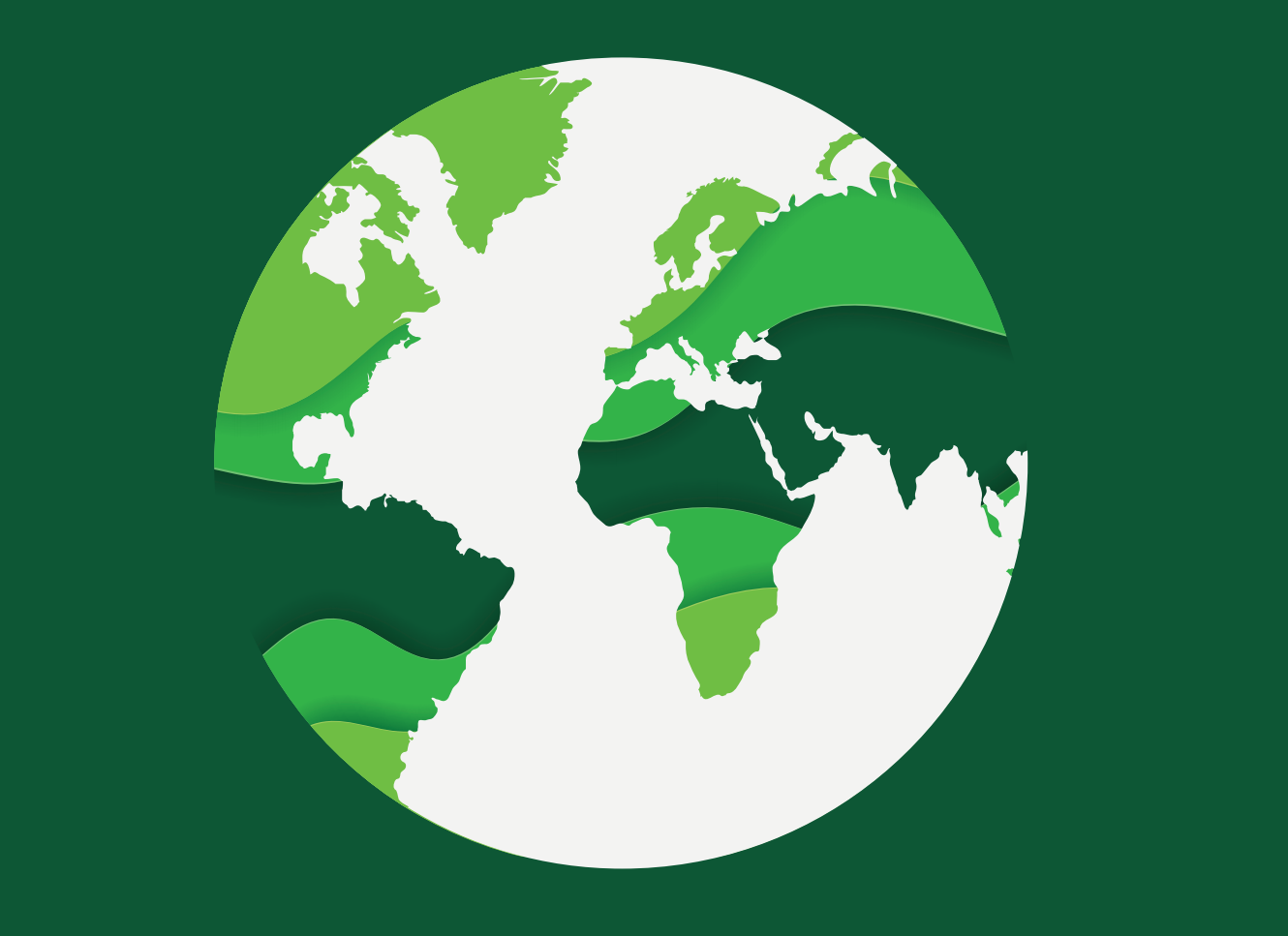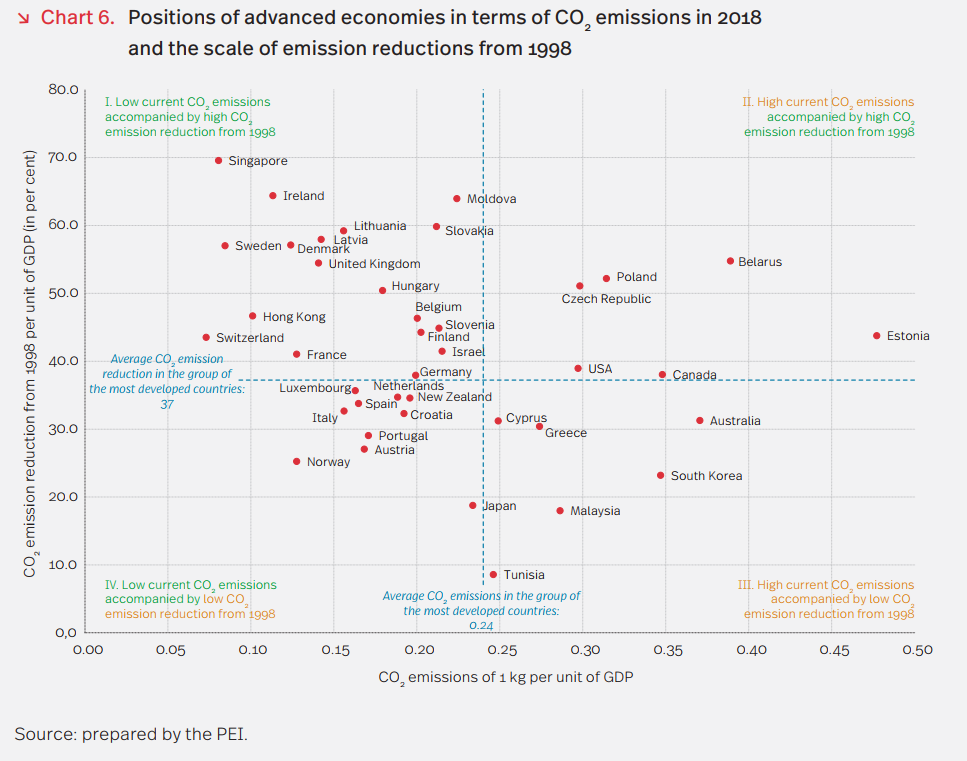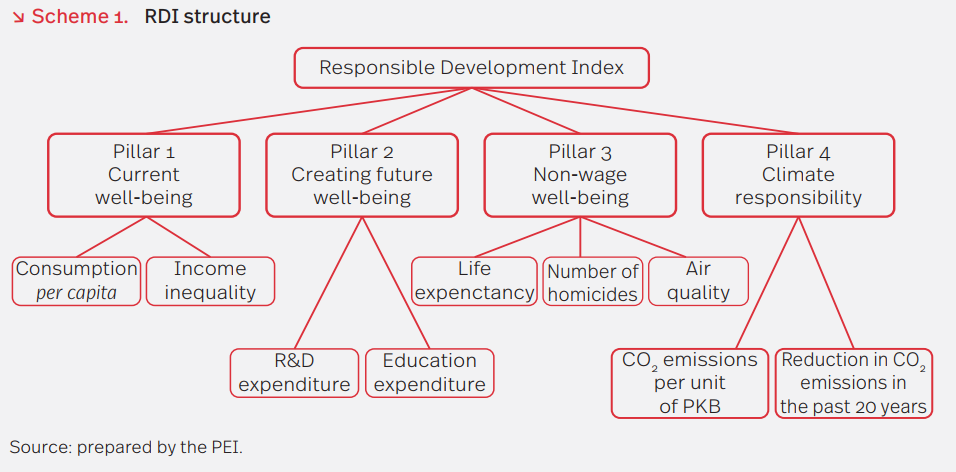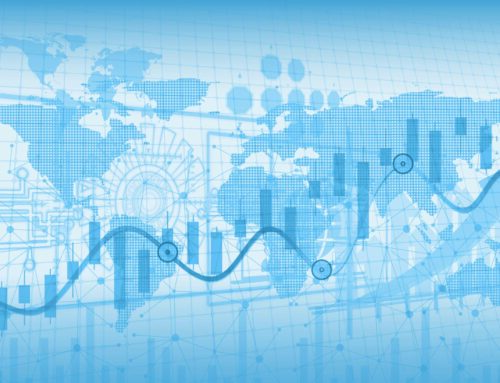The Scandinavian countries proved to be the world’s most developed economies in the Responsible Development Index ranking

Published: 16/09/2020
Sweden, Denmark and Norway proved to be the world’s most developed economies in the Responsible Development Index ranking, prepared by the Polish Economic Institute for the second time.
The RDI is a measure of country development, an alternative to GDP. For the first time, this year’s version of the RDI includes a component related to countries’ climate responsibility. In the categories of CO2 emissions per unit of GDP and emission reduction, Macao, Singapore and Ireland ranked the highest among the 159 countries covered.
The ranking in terms of GDP per capita understates the ranks of countries taking care of sustainable socio-economic development. It holds true, especially, for the Scandinavian countries and Finland. The quality of life in the above-mentioned countries is appreciated not only by our RDI, but also by other development rankings alternative to GDP. As regards the 2018 Human Development Index, Norway ranked 1st and Sweden – 8th (United Nations, 2019). In the Global Competitiveness Index ranking, the respective ranks of Sweden, Denmark, Finland and Norway were 9th, 10th, 11th and 16th (World Economic Forum, 2018). All the four countries described above are also top performers in terms of the Social Progress Index, led by Norway, ahead of Denmark (4th) and Finland (5th), followed by Sweden in 11th place (Social Progress Imperative, 2018). GDP per capita also tends to overstate the development levels of countries abundant in natural resources. The countries showing the most abrupt decreases in the RDI ranking as compared to the ranking in terms of GDP per capita include Bahrain (100 spots), Qatar (98 spots), Saudi Arabia (68 spots), the United Arab Emirates (60 spots) and Kuwait (48 spots).
Among the 159 countries covered by the Responsible Development Index, Poland was the world’s 32nd most developed country, ranking 8 spots higher than in terms of GDP per capita. In the RDI ranking, Poland outperformed Russia or China and the EU Member States such as Greece, Croatia, Lithuania, Latvia, Romania and Bulgaria. ‘Countries with GDP per capita higher than Polish GDP at purchasing power parity but behind Poland in the RDI ranking included the United Arab Emirates, Bahrain and Lithuania. We also performed relatively well against the backdrop of the Visegrad Group countries. We closely followed Hungary and Slovakia, ranked 30th and 31st respectively, but we were significantly behind the Czech Republic, ranked 20th’, adds Piotr Arak, the Director of the Polish Economic Institute.
In the Responsible Development Index ranking, Poland’s position was the strongest in terms of current well-being (pillar I of the RDI) – 27th among the 159 countries under analysis – due to relatively low income inequality. The world’s leaders in the factor in question included Hong Kong, the United States and Norway. Poland ranked low in the top forty in terms of creating future well-being (pillar II) and non-wage factors (pillar III). Its position was determined by relatively low research and development expenditure, representing 1.03 per cent of Poland’s GDP (the 35th score worldwide). The global leaders in pillar II, i.e. creating future well-being, were Israel, Sweden and South Korea, whereas the best performers in pillar III, i.e. non-wage factors, included Sweden, Norway, Australia and New Zealand.
As regards detailed indicators incorporated into the Responsible Development Index, Poland ranked the highest in the measure of security. In 2018, the number of intentional homicides was 0.77 per 100,000 inhabitants, the 23rd score in the world. It is worth remembering that in the early 1990s, the respective number was about triple the current figure. In our region, we performed better than Slovakia and Hungary (ranked 40th and 71st respectively) but behind the Czech Republic (15th place).
Climate change must not be ignored
One of the most important postulates of the RDI is to incorporate global climate responsibility into measures of a country’s development. Counteracting climate change may be the world’s most important challenge of the 21st century. Scientific research has demonstrated that global warming of 1.5°C or 2°C will intensify droughts and floods and their adverse effects on both ecosystems and social systems. Therefore, we found it necessary to incorporate greenhouse gas emission control as a component of assessments of country development into the RDI ranking.
‘The main idea behind our creating the RDI is that socio-economic development cannot be measured exclusively by the output of goods and services. GDP excludes certain vital aspects affecting the assessment of societies’ well-being and significantly overstates the development levels of tax havens and countries rich in natural resources’, explains Jakub Sawulski, the head of the macroeconomics team of the Polish Economic Institute.
Macao, Singapore and Ireland led the way in pillar IV of the Responsible Development Index, related to climate responsibility. Poland performed the worst in the pillar in question. As regards the current level of CO2 emissions per unit of GDP, Poland ranked 126th, among the countries having the most detrimental influence on global climate. Optimistically, however, due to an impressive scale of emission reduction by 52 per cent in 1998–2018, Poland ranked 18th worldwide in the category concerned. The situation of the Czech Republic, the USA, Canada and Australia was similar to that of Poland, but the Anglo-Saxon countries achieved less significant emission reductions.
The largest CO2 emitters per unit of GDP primarily included relatively less developed economies and Eastern European countries (Ukraine, Bosnia and Herzegovina, Kosovo and Estonia).
What are the best countries to live in?
The Scandinavian countries lead the way in responsible development, being characterised not only by relatively high average wealth but also by low income inequalities and substantial investments in the future. Additionally, they make efforts to improve global climate, as reflected by their low CO2 emissions and a large scale of emission reduction in the last 20 years. The top ten countries also included Israel, Austria and the United States. But balancing the economic, social and environmental dimensions of development appears to be difficult for the USA, which may have indirectly led to social unrest and the protests in the country in question.
The first edition of the Responsible Development Index, published in 2019, was composed of three pillars comprising eight indicators. In this year’s version of the RDI, we added a fourth pillar, related to climate responsibility.
Polski Instytut Ekonomiczny to publiczny think tank gospodarczy, którego historia sięga 1928 roku. Obszary badawcze Polskiego Instytutu Ekonomicznego to przede wszystkim handel zagraniczny, makroekonomia, energetyka i gospodarka cyfrowa oraz analizy strategiczne dotyczące kluczowych obszarów życia społecznego i publicznego Polski. Instytut zajmuje się dostarczaniem analiz i ekspertyz do realizacji Strategii na Rzecz Odpowiedzialnego Rozwoju, a także popularyzacją polskich badań naukowych z zakresu nauk ekonomicznych i społecznych w kraju oraz za granicą.
Kontakt dla mediów:
Agata Kołodziej
Kierownik Zespołu Komunikacji
tel. 48 727 427 918
Kategoria: Macroeconomics / Press releases / Report / Reports 2020








